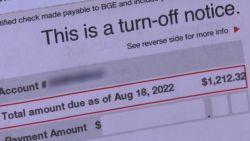China isn’t the only major Asian economy facing an energy crisis. India may be staring at electricityshortages in the coming months because coal stocks at most of its power plants have dropped to critically low levels.
As many as 63 of the 135 coal-firedpower plants in Asia’s third largest economy have two days — or less — of coal supplies, India’s Central Electricity Authority (CEA) said in a report on Tuesday. Coal stocks at 17 of them have been run down to zero, it added.
In total, 75 plants are running with five days worth of coal or less, the level the CEA deems to be “super critical.” While these plants won’t go offline in a matter of days, they are extremely vulnerable to any further disruption to coal supply or a spike in demand.
Coal accounts for almost 70% of the country’s electricity generation.
India’s Ministry of Coal did not respond for a request for commentfrom CNN Business. But power minister R.K. Singh told The Indian Express newspaper that the situation may not be “comfortable” for the “next five [to]six” months.

Power demand has been surging in India as businesses recover from a brutal wave of Covid-19 earlier this year. In a statement last month, the power ministry said that the “rising demand for energy augurs well for the economy and is encouraging,” as it means that more households are able to afford electricity, and industries are getting back to pre-pandemic levels.
“Demand is not going to go away, it’s going to increase,” Singh toldThe Indian Express. “We’ve added 28.2 million consumers. Most of them are lower-middle class and poor, so they are buying fans, lights, televisions sets.”
At the same time, India’s coal supply has been hit by the monsoon season, when heavy rainfall impacts mining and transportation. Singh said that the current shortage is “beyond” normal but it hadn’t resulted in any power outages yet.
“[There] is nowhere that we have not been able to supply the quantity of power demanded,” he said.
Coal India Limited, which produces most of the coal mined in India, has been asked to ramp up production, according to a ministry statement.
However, if India is not able to fix the coal crunch soon, “power sector companies face the prospect of importing coal at significant cost,” damaging the country’s economic recovery, according to analysts at Nomura.
The post-pandemic commodities boom and efforts to reduce coal mining to tackle the climate crisis have driven global prices sky high.
While air conditioning use typically eases towards the end of the year, relieving pressure on the power grid, India will celebrate one of its biggest festivals, Diwali, in November, and that could lead to another spike in consumption.
“With power demand likely to rise amid the continued economic normalization and upcoming festive sales, supply-side disruptions pose an important near-term downside risk to growth momentum,” Nomura’s analysts Sonal Varma and Aurodeep Nandi said in a note on Wednesday.
A power crunch in China has already triggered blackouts for households and forced factories to cut production, threatening to slow the country’s vast economy and place even more strain on global supply chains.
— Manveena Suri contributed to this report.

























